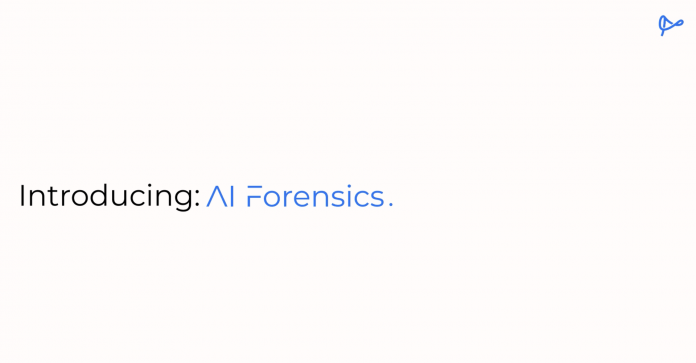A technology currently firmly having its moment in the sun is artificial intelligence. With the GenerativeAI platform ChatGPT taking the world by storm earlier this year, many onlookers are excited to see what comes next. The role of AI is evolving rapidly, and what is proving able to achieve.
One company that has proven adept at capitalising on this huge wave is RegTech firm Flagright. The firm recently introduced AI Forensics, as AI-driven platform that seeks to revolutionise financial crime prevention and investigation. The platform features automated alert management to ensure thorough investigations and data-driven insights for strategic planning, as well as search capabilities that simply complex data analysis.
“AI Forensics is our latest feature as part of our AI series where we automate all of the investigative tasks that others have to do manually,” said Madhu Nadig, co-founder and CTO of Flagright. “Specifically, the thing we focus on is data gathering and analysis – we saw that a significant percentage of our customers spent an excruciatingly long amount of time just gathering data because it was siloed over multiple places.”
Through AI Forensics, users are able to join this data set and create an internal data warehouse and gather the data over a few seconds. The product also allows Flagright to perform investigations on behalf of its customers so they aren’t required to do these tasks anymore. “We were able to cut down investigative times by 90% – it’s like onboarding an army of analysts by just using this new technology.”
AI Forensics impact
With the RegTech market continuing to hot up with an increasing demand for AI-focused products, what impact will AI Forensics have on the market?
The key watchword here for Nadig is efficiency. He said, “From the compliance side, we’ll get far more efficient. With this kind of technology, you can grow three to five times the volume of transactions without increasing your compliance headcount. In addition, users will now be able to manage risk without having a large team managing the risk, as it is absorbed by the technology itself.”
Nadig also mentioned that he believes most companies eventually will not be selling their software tools but will be selling the actual service.” For example, for example, compliance tool providers such as ourselves will eventually be selling compliance directly, instead of just selling the software tools.”
The inspiration
With the AI market red hot right now, a key inspiration behind the creation of AI Forensics came from not only the way the market was going but also the demand from customers.
Nadig explained, “We recognised that the biggest issue our customers were facing in terms of critical operations was just having a large backlog. Any financial institution or FinTech with some transaction volume definitely has a lot of backlog. And at some point, it’s just no longer sustainable to throw more humans at the problem.”
According to the CTO, the first line of defence are things like false positive rejection, ensuring that the policies and checks for transaction monitoring are accurate. However, a significant number of these alerts require investigation and documentation before being disposed.
He explained, “Many of them will still require them to be reported to the regulator. So we saw that this is a pain our customers were facing and we worked closely with our customers to come out with this AI forensics feature.”
AI’s role in RegTech
Industries across the board and taking the time to consider the role AI – and more specifically the rip-roaring Generative AI – will continue to play on their industry. In a sector as ripe for innovation as RegTech, this could lead to huge changes.
Nadig underlined that Flagright are firm believers in the role of AI within RegTech, and stated, “We were one of, if not the first in the industry to use Generative AI. We already see the use of this technology, it’s no longer a hypothesis – we have customers that use it on a day to day and it has really transformed their operations.”
With Flagright’s launch of AI Forensics, this also begins to play a role in this revolution. “AI Forensics is a big leap forward for the industry as a whole as firms are able to 10x their operational effectiveness – and we’re just scratching the surface in terms of where this product can go going forward.”
In the view of Nadig, software will not just be a tool in the future but will come packaged with work. He explained, “An example is like how AI Forensics does the work for you of gathering the data and performing initial analysis of getting insights from the data to enable you to make decisions faster.”
The Flagright CTO said the company are ‘firm believers’ in AI being at the foundation of most products, with the AI-native firm believing a lot more software systems, especially in the RegTech space, will become AI-native. In this respect, this will lead the humans to focus more creative-focused tasks and things that require human judgement as opposed to manual data gathering.
Future plans
As the company looks towards the future, Nadig emphasised Flagright’s intent to double down on AI Forensics and making sure that customers get the most benefit from the feature.
He added, “Apart from that, we’re also working on vertical automation. A lot of vendors focus on just automating away the workflow side of things, and we believe this is inadequate as then you’re just treating a symptom. We’re also working on enabling compliance teams to be more efficient, how they set up their policies or their rules or how they configure machine learning models as part of their compliance stack.”
Nadig also emphasised that the company is working towards having automation in each part of the system. “We reached a state where, with the kind of productivity boosts we saw with AI Forensics, you’re able to handle ten times more transaction volume. We want to enable the same kind of impact across the compliance stack and Generative AI can bridge a lot of technological gaps that traditional machine learning models have.”
Keep up with all the latest FinTech news here.
Copyright © 2023 FinTech Global











